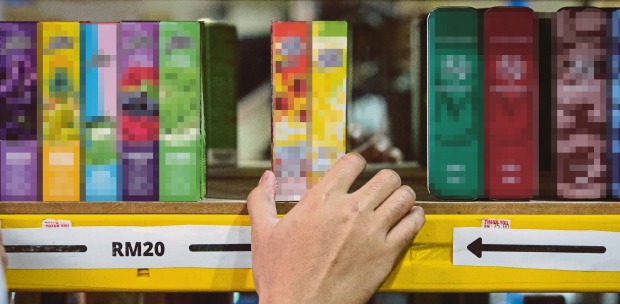Consumer groups believe the spending pattern of Malaysians will change after the enforcement of the 10 per cent sales tax for online sales of imported low-value goods (LVG).
Consumers Association of Kedah (Cake) president Mohamad Yusrizal Yusoff told the New Sunday Times yesterday that the sales tax would push consumers to opt for local substitutes, which would benefit the local industry.
He said taxing imported goods for online sales was inevitable as local sellers were already subjected to the Sales and Services Tax (SST), and that there had been no control or tax collection for the online sales of imported goods.
"Online sales have shot up since the pandemic, where people are shopping from across the globe, but only our local sellers are subjected to the SST.

"This new tax will level the playing field for traders, as consumers will now have better options for local products with an expected increase in tax on imported LVG." He said local traders should take advantage of the implementation of the new tax to improve their business by promoting local products.
"As we are moving ahead with digitalisation, we should embrace this. It will be a win-win for consumers and local retailers."
Federation of Malaysian Consumers Associations (Fomca) secretary-general T. Saravanan also believes consumers will change their purchasing patterns and look for on-par local items.
He said consumers had to accept that the price of imported goods would continue to increase due to international scenarios, which impact the ringgit's value.
So, he said, taxing imported LVG would benefit the government in revenue collection.
However, he warned of possible price manipulation, especially during the early days of the tax implementation.
"The Customs Department has a system in place to monitor this, where there is a registration requirement for local and foreign sellers with a total LVG sale value of RM500,000 over a 12-month period.
"The hiccups will be there. The onus is on the Customs Department to ensure that sellers do not take advantage of it.
"Consumers also need to report to the authorities if they find that the sellers are hiking up prices unnecessarily."

Last year, the Dewan Rakyat approved the Sales Tax (Amendment) Bill 2022, where a 10 per cent tax will be imposed on low-value foreign goods bought online and shipped to Malaysia.
The new tax imposition on goods sold below RM500 online should have started in April, but was put on hold.
The tax will now be charged from Jan 1, 2024.
According to the Federal Government Gazette published by the Attorney-General's Chambers on Dec 8, Prime Minister and Finance Minister Datuk Seri Anwar Ibrahim signed the Sales Tax (Amendment) Act 2022: Appointment of Effective Date for Charging and Levying of Sales Tax on LVG on Dec 4.






